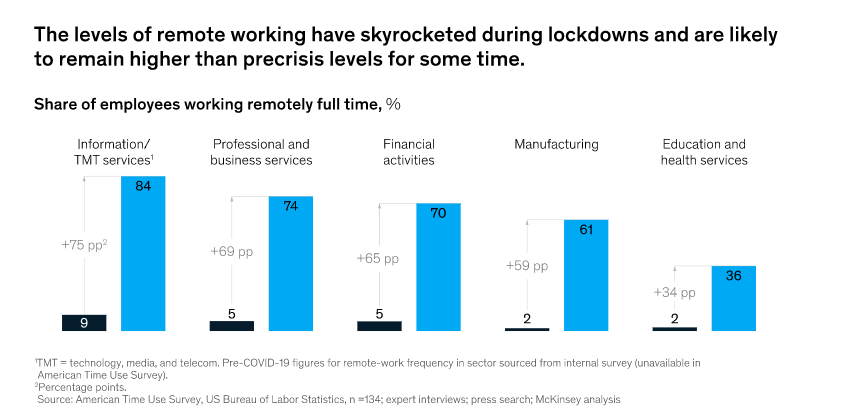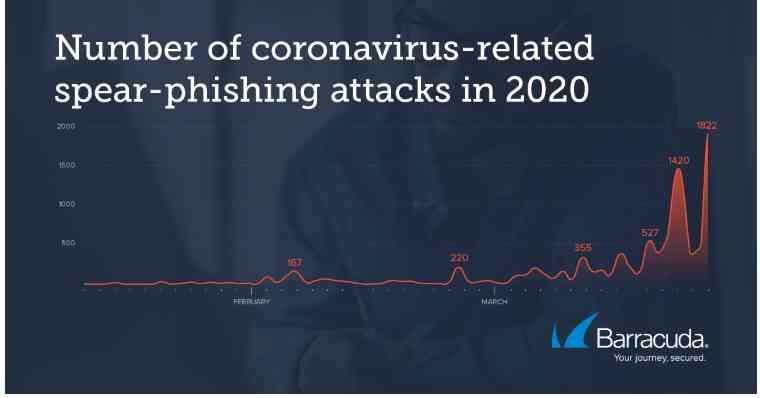The Pandemic Cybersecurity Job Demand Surge : What Makes it easier to crack them now?
As the onslaught of the Coronavirus pandemic hit the globe in March, the majority of the countries worldwide were under lockdown. This forced businesses and enterprises, big, small, and remote to overnight shift to a remote or a disturbed working model.
The worldwide change in Lifestyle
As employees began working from home, security agencies predicted a surge in cybersecurity attacks because the computer networks and routers the employees were using at home were unprotected. Cybercriminals started taking advantage of the “new normal” to lure internet users to access their sensitive data and information.
Not wanting to sound like an alarmist, but the “working from home” model makes cybersecurity a must-have. Minimal hygiene, the absence of sophisticated technologies could cost the survival of businesses.
Moreover, 2019 was one of the worst-hit years in terms of data breaches despite everything being normal. It’s scary to even imagine how cybercriminals can exploit the current crisis.
-1.jpg)
Considering the sensitivity of the scenario it wouldn’t be an exaggeration to predict that COVID-19 and beyond, the demand for cybersecurity jobs and professionals are going to be higher than ever. The surge in the demand for ensuring enterprise safety has made the cybersecurity jobs easier to crack.
Let’s start with the changes that the pandemic has brought in the cybersecurity industry. This will be the answer to your question, “Is cybersecurity a good career choice?”
What is fuelling the surge in cybersecurity jobs and entry-level cybersecurity jobs during the pandemic?
In almost every industry, ranging from technology, healthcare, education to banking and finance, employees are working remotely. The result is companies being vulnerable to breaches and data redundancy even more than ever before.
According to the data shared by the job portal Indeed, between February to May 2020, searches related to cybersecurity jobs increased by 30%. They reported a 6% rise in the cybersecurity based job postings by employers.
These cybersecurity roles are seeing a lot of interest from millennials and entry-level job seekers. Talent in the age group of 25-29 is keen on taking up cybersecurity-related jobs.
With WHO reporting a 5-fold increase in cyberattacks targeting both individuals and their organizations, there is a growing demand for information security analysts, cybersecurity analysts, and cybersecurity engineers. Companies of all sizes are ramping up their security. This is leading to increased budget allocation for cybersecurity.
As the workforce plans to work from home for some time, organizations are creating a more secure environment to guard against data breaches, which is the key reason why remote jobs in cybersecurity are the need of the hour during this pandemic.

The role of cybersecurity engineers as risk managers is essential for organizations to maintain their infrastructural viability. To facilitate remote working, support critical infrastructure and help businesses stay online, cybersecurity engineers and entry-level cybersecurity jobs will play a significant role post-COVID-19.
Here are the 3 main reasons why a job in cybersecurity is a great career choice:
#1. Digitization will keep growing, even after the pandemic – A research by McKinsey showed that we have accelerated five years in digital adoption in a matter of eight weeks, due to the Coronavirus pandemic.
Banks transitioned to making remote sales and offering digital customer support. Grocery stores moved to online deliveries. Schools pivoted to online learning and digital classrooms. Doctors are adopting telemedicine. The list of digitization goes on.
-1.png)
As more workload is migrated to the cloud, the need for skilled cybersecurity engineers is going to grow.
#2. Cybersecurity is a competitive edge – Banks and the financial organizations are ramping up their surveillance mechanisms to detect threats at every level of their organization. The ability to make payments smoothly is important in the current situation, banks are reassessing their thread identification, management and control processes.
The demand for information security analysts and cybersecurity engineers is witnessing an upward trajectory because data protection and cyber hygiene will be a competitive edge for brands to gain the trust of their digital consumers.
#3. Companies providing cybersecurity solutions are seeing an uptick in the number of users – From a technology perspective, with entire teams of hundreds and thousands of employees being digitally connected, their laptops, VPN and cloud infrastructure are vulnerable to cybersecurity attacks. Products and services addressing these risks are in demand, as a result the hiring for cybersecurity engineer jobs is only going to increase.
While every department is coming under the radar of layoffs, it seems that cybersecurity is one area that will remain virus-proof during and after COVID-19. However, that brings us to the next point, a shortage of cybersecurity professionals at present.
The shortage of cybersecurity experts is proving to be a bane for many organizations as they have lost millions of dollars due to high-profile breaches. At the end of 2019, there were 4.07 million unfulfilled positions in the cybersecurity space that puts the current cybersecurity workforce into serious pressure and long working hours that impact their productivity.
-2.jpg)
Now, when the companies have gone digital and are at higher risk of getting hacked, surviving without trained cybersecurity staff is out of the question. Businesses have to be prepared to hire cybersecurity professionals and fill the talent gap in the industry for controlling cybercrimes.
Incidents of data breaches that have encouraged the rapid hiring of cybersecurity professionals during the pandemic
A report by Barracuda Networks found a 667% rise in the number of Coronavirus related email attacks, found the leading data protection solutions provider. The phishing campaigns are taking advantage of COVID-19 to distribute malware, steal credentials and scam users of their money.

-3.jpg)
And not just small businesses, even global organizations such as WHO, the US defense system, and multinational companies such as Cognizant have been victims of cybersecurity attacks and data leaks.
With online learning set-up schools and colleges have to be even more cautious about protecting their data and hence they are looking for cybersecurity engineers and experts who can help them with keeping their confidential information safe.
When working from home people have more time to spend online and they’re revealing more details on social platforms which is making them come under the radar of cybercriminals.
More online information means more data to monitor for the cybersecurity professionals and hence the demand for remote cybersecurity jobs is bound to increase.
How has the pandemic influenced cybersecurity jobs? Why are they easier to crack now?
Due to the higher demand for cybersecurity professionals, companies are looking for employees who are not that classically trained or have a college degree but are capable to identify the vulnerabilities in their databases and deploy relevant controls.
The shift from the dominance of seasoned cybersecurity experts with a formal college degree to the ones who are efficient in the niche and can be accommodated in the rapidly changing technology environment has increased the way for cybersecurity training and certification courses.
Moreover, 59% of cybersecurity roles demand minimum one certification which will help entry-level employees to develop required skills and earn verifiable cybersecurity certifications for a lucrative job offer.
-4.jpg)
Is it the right time to build a career in the field of cybersecurity?
Keeping in mind the rise in demand for cybersecurity professionals and the vulnerable business landscape considering a career in cybersecurity can be your best decision. A certified professional course in cybersecurity will enable you to get noticed by the top employers in the industry.
How much do cybersecurity jobs pay?
As hiring for cybersecurity professionals is surging, so is the scope for cybersecurity jobs in India. The profiles that are being actively recruited are:
-
Network security engineer – The salary of an entry-level cybersecurity professional as a network security engineer starts from 6 lakhs and can go up to 8 lakhs.
-
Cybersecurity analyst – The average salary a cybersecurity analyst draws in India is in the range of 6 to 10 lakhs.
-
Security architect – As per Indeed.com, a security architect takes a salary upwards of 17 lakhs in India.
-
Cybersecurity manager – They draw a salary between 12-24 lakhs.
-
Chief information security officer – As a C-level executive heading the security department of an organization, the chief information security officer’s salary starts from 1 crore per annum.
The rising demand for Cybersecurity Professionals
Data breaches have emerged as one of the biggest challenges for businesses during the pandemic. The imbalance in the number of cybersecurity professionals with the increased demand to fill the cybersecurity job positions has led to an accurate skills shortage. If you are looking to build a career as a cybersecurity worker, this is the best time. Do check our course on cybersecurity.
Quarantined? Check out our catalog of cybersecurity courses and kickstart your cybersecurity career.